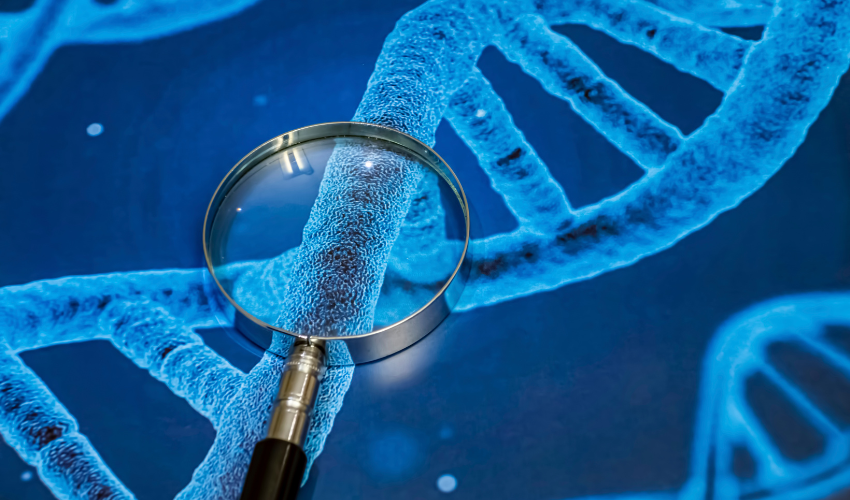Cancer is a complex disease that arises from the accumulation of genetic alterations in cells. Genetic markers are DNA sequences or variations that can be used to identify the presence or risk of certain diseases, including cancer. In the context of cancer, genetic markers refer to genes that are associated with an increased risk of developing cancer, as well as genes that can be used to diagnose or predict the outcome of cancer.
In this article, we will explore the concept of genetic markers for cancer, their types, and how they can be used in cancer diagnosis and treatment.

Types of Genetic Markers for Cancer:
- Tumor Suppressor Genes: These genes are responsible for preventing the growth of cancer cells by inhibiting cell division. When these genes are mutated or deleted, they lose their ability to suppress the growth of cancer cells, which can lead to the development of cancer.
- Oncogenes: These genes promote the growth and division of cells. When these genes are mutated, they can become overactive, leading to uncontrolled cell growth and division, which can lead to cancer.
- DNA Repair Genes: These genes are responsible for repairing damaged DNA. When these genes are mutated, they lose their ability to repair DNA damage, which can lead to the accumulation of genetic alterations and the development of cancer.
- Epigenetic Markers: Epigenetic markers are chemical modifications to DNA that can affect gene expression. Changes in epigenetic markers can alter gene expression patterns, leading to the development of cancer.

Uses of Genetic Markers for Cancer:
- Early Detection: Genetic markers can be used to detect cancer at an early stage, before symptoms appear. For example, genetic markers for breast cancer can be used to identify women who have an increased risk of developing breast cancer, allowing for early detection and treatment.
- Prognosis: Genetic markers can be used to predict the outcome of cancer. For example, genetic markers for prostate cancer can be used to determine the aggressiveness of the cancer, allowing for more personalized treatment.
- Treatment: Genetic markers can be used to guide cancer treatment. For example, genetic markers for lung cancer can be used to identify patients who are likely to respond to a particular treatment, allowing for more effective treatment and better outcomes.
FAQs:
Can genetic markers for cancer be inherited?
Yes, some genetic markers for cancer can be inherited from parents. For example, mutations in the BRCA1 and BRCA2 genes are associated with an increased risk of breast and ovarian cancer.
Can genetic markers for cancer be used to prevent cancer?
Genetic markers for cancer can be used to identify individuals who are at an increased risk of developing cancer, allowing for early detection and treatment. However, genetic markers cannot prevent cancer from developing.
How are genetic markers for cancer identified?
Genetic markers for cancer are identified through a process called genetic testing. This involves analyzing a person’s DNA for specific genetic variations that are associated with an increased risk of cancer.
Are genetic markers for cancer always accurate?
While genetic markers for cancer can be useful in predicting the risk of cancer, they are not always accurate. Other factors, such as environmental factors, can also play a role in cancer development.
Can genetic markers for cancer be used to diagnose cancer?
Yes, genetic markers can be used to diagnose certain types of cancer. For example, genetic markers for leukemia can be used to identify specific types of leukemia, allowing for more targeted treatment.
Conclusion:
Genetic markers for cancer play a crucial role in cancer diagnosis, prognosis, and treatment. They can be used to identify individuals who are at an increased risk of developing cancer, allowing for early detection and treatment. They can also be used to predict the outcome of cancer and guide treatment decisions.
However, it is important to note that genetic markers for cancer are not always accurate and should be used in conjunction with other diagnostic tools. Additionally, genetic testing should be done under the guidance of a healthcare professional to ensure that individuals receive accurate and appropriate information about their cancer risk.
As research into genetic markers for cancer continues, it is likely that we will gain a better understanding of the role that genes play in cancer development, and how we can use this knowledge to improve cancer diagnosis and treatment.






















